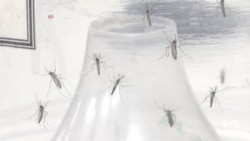The World Health Organization declared Zika a global health emergency Monday. And for many governments and experts, the worst may be yet to come.
Zika is a danger to public health because it is thought to be linked to microcephaly, a neurological disorder in which babies are born with abnormally small heads.
“After a review of the evidence, the committee advised that the causes of microcephaly and other neurological complications constitute an extraordinary event and a public health threat to other parts of the world,” said Dr. Margaret Chan, director of the World Health Organization after an emergency meeting in the organization’s headquarters in Geneva.
Statements from WHO ZIKA News Conference, Feb. 1, 2016
Because the Zika virus is passed from person to person by common mosquitoes, the virus could be unstoppable.
The WHO says more than 4 million in the Americas could eventually be infected.
Emergency in Brazil
Brazil has been hit the hardest with an explosion of newborns with microcephaly. Marcelo Castro, health minister of Brazil said the outbreak is worse than believed.
“Technicians have informed us that approximately 80 percent of people who are infected by the Zika virus, do not develop significant symptoms, so a large number of those infected by the Zika virus, contract the illness, but they do not develop symptoms,” said Castro.
Brazilian researchers said they are convinced there is a relation between Zika and microcephaly.
Since October 2015, more than 4,000 cases of microcephaly have been reported in Brazil. In 2014, there were only 150 similar cases.
No treatment
Another cause of concern is that there is no known cure. Scientists think it could take years before a vaccine is developed. Many also say drug companies don’t see a profit in creating treatments for diseases that affect the developing world.
“We need to think with a different logic that is not market-driven. I think the market-driven logic and paradigm is outdated. We need to look at these as a global health challenge that needs a global health comprehensive response,” Dr. Carolina Batista, from the Drugs for Neglected Diseases Initiative, told VOA in an interview from Rio de Janeiro.
Batista said drug companies should concentrate on the patient and not on revenue.
Attack the mosquito
Because of the lack of treatment, many argue the only way to contain the virus is attacking the mosquito.
“The key issue is for those countries to do aggressive control of the mosquito, to implement and engage all of society in a multi-sectorial and inter-sectorial approach to control the vehicle that transmits the virus,” Marcos Espinal of the Pan American Health Organization told VOA.
Espinal also says countries with tropical conditions, which are common in Latin America, are in more danger. In much of the U.S. and Canada, the mosquito doesn’t do well in winter, so an outbreak is less likely.







